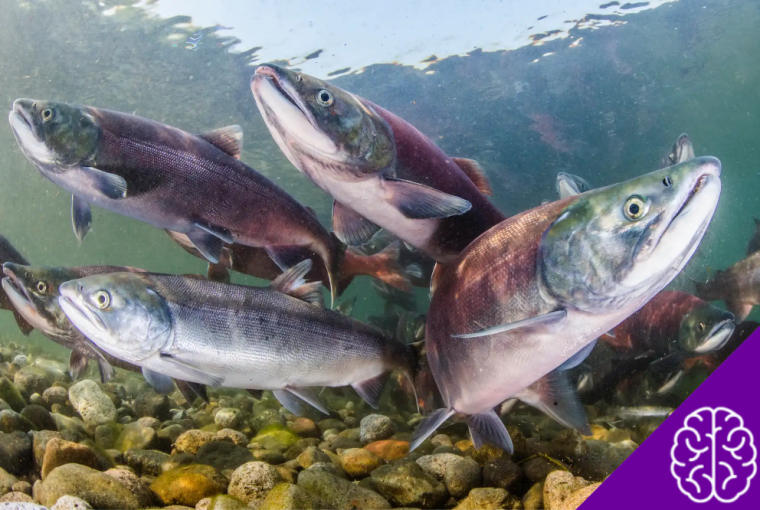Have you ever wondered if fish drink water? They’re surrounded by it all the time, so you might think they don’t need to—but surprisingly, they do! Like all living creatures, fish need to stay hydrated, but how they manage this task depends on whether they live in freshwater or saltwater environments.
Understanding how fish “drink” water offers fascinating insights into the adaptive marvels of the natural world. Let’s break this down and explore how these aquatic creatures stay hydrated.
By the end, you’ll not only have an answer to this curious question but also a newfound appreciation for the complexity of nature.
How Do Freshwater Fish Stay Hydrated?
Freshwater fish live in environments where the water around them has a lower salt concentration than their bodies. This creates a fascinating osmotic effect.
Osmosis at Work
Osmosis is the movement of water from areas of low solute concentration (like freshwater) to areas of higher solute concentration (like a fish’s body).
For freshwater fish, this means water naturally flows into their bodies through their skin and gills. Essentially, they absorb water like a sponge, without needing to “drink” it actively.
Avoiding Water Overload
While it might sound like free hydration, constantly absorbing water can create its own set of challenges.
Freshwater fish have to work hard to maintain the right balance of water and salts in their bodies. They do this through:
- Diluted Urine: Freshwater fish produce large amounts of highly diluted urine to expel excess water. Essentially, they spend a lot of time… urinating!
- Specialized Kidneys: Their kidneys play a vital role in filtering out excess water while retaining essential salts and nutrients.
This finely tuned process ensures that freshwater fish remain hydrated without becoming waterlogged.
Saltwater Fish Are Professional Water Drinkers
The story is quite different for saltwater fish, which live in oceans where the water is saltier than their bodies. Instead of absorbing water like their freshwater cousins, saltwater fish are constantly losing water due to osmosis.
Combatting Dehydration
Since water naturally flows out of their bodies to the saltier ocean environment, these fish need to actively drink to replace the lost water. They gulp down seawater to stay hydrated.
The Problem with Salt
Drinking seawater introduces a new challenge: dealing with the excess salt. Too much salt in their systems could be deadly, but saltwater fish have evolved specialized mechanisms to handle this:
- Salt-Filtering Gills: Their gills are equipped with special cells that filter out and expel excess salt, keeping their internal salt levels balanced.
- Rectal Glands (in Sharks): Some species, like sharks, have an additional adaptation—a rectal gland that eliminates extra salt.
These mechanisms allow saltwater fish to thrive in one of the planet’s most challenging environments.
Key Differences Between Freshwater and Saltwater Fish
To summarize, the way fish stay hydrated depends entirely on their habitat:
| Freshwater Fish | Saltwater Fish |
| Water flows into their bodies through osmosis. | Water flows out of their bodies due to osmosis. |
| Have no need to drink water actively. | Must drink seawater to replace lost fluids. |
| Produce large amounts of diluted urine to expel excess water. | Filter out salt using specialized cells in their gills and other adaptations. |
These evolutionary differences are prime examples of how fish have adapted to their unique environments.
Why Does This Matter?
Understanding these mechanisms not only satisfies our curiosity but also contributes to fields like marine biology and ecology.
For instance, knowing how fish interact with their environment helps scientists monitor the health of aquatic ecosystems, which are vital to maintaining global biodiversity.
Additionally, these insights inspire innovations in technology. For example, researchers studying how fish regulate salt levels are developing advanced water filtration systems and desalination techniques to address freshwater scarcity in human populations.
The Incredible Adaptability of Fish!
The question “Do fish drink water?” might seem simple at first, but the answer reveals the incredible complexity of nature.
Whether they absorb water through their skin or actively gulp seawater, fish have evolved highly specialized systems to ensure they stay hydrated no matter where they live.
Next time you see fish swimming gracefully in an aquarium, pond, or ocean, take a moment to appreciate the intricacies of their survival. Nature, as always, continues to amaze with its ingenious solutions to life’s challenges!


